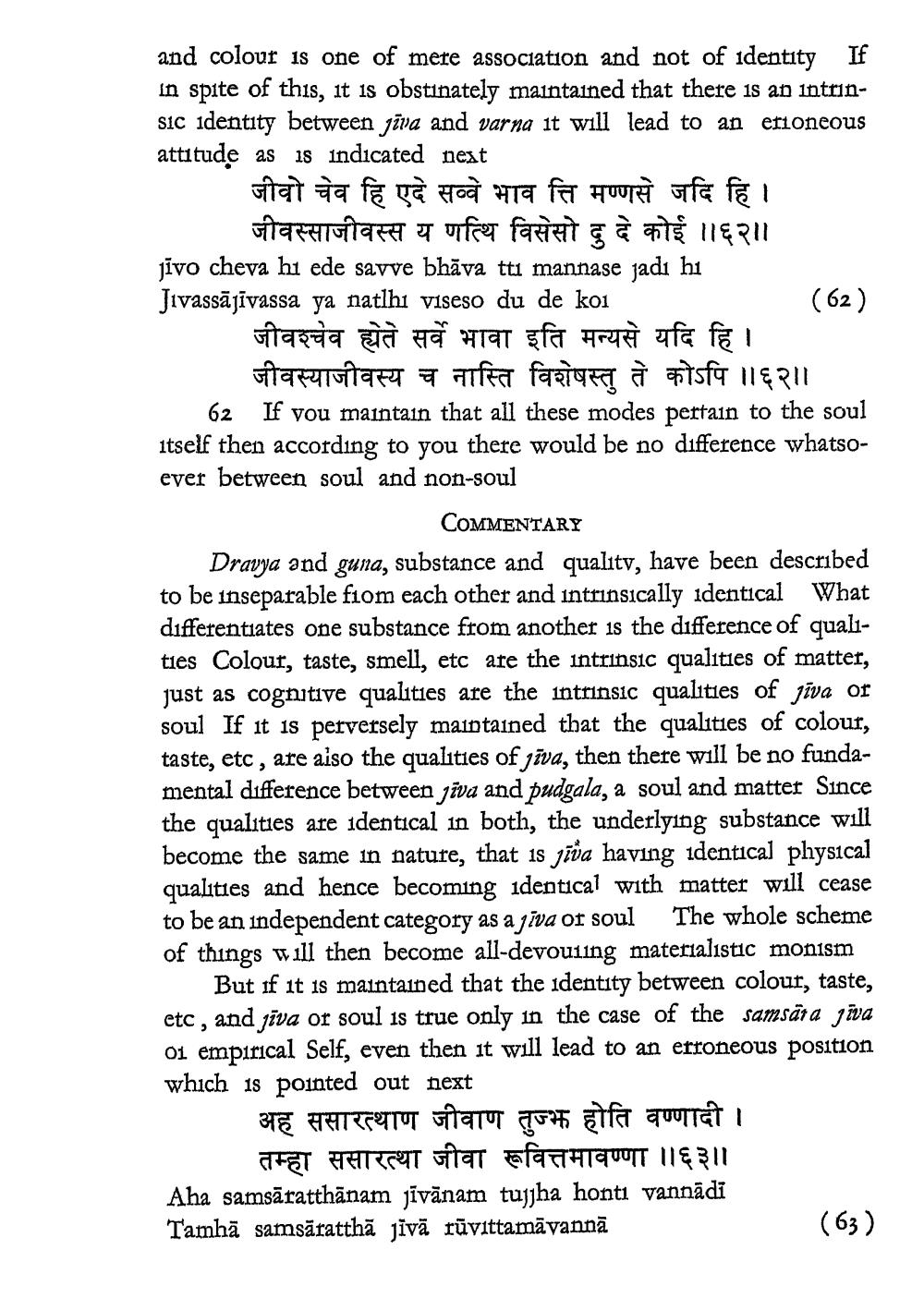________________
and colour is one of mere association and not of identity If in spite of this, it is obstinately maintained that there is an intrinsic identity between jīva and varna it will lead to an erioneous attitude as is indicated next ___ जीवो चेव हि एदे सव्वे भाव त्ति मण्णसे जदि हि ।
जीवस्साजीवस्स य णत्थि विसेसो दु दे कोई ॥६२॥ jīvo cheva hı ede savve bhāva tti mannase jadi hi Jivassājīvassa ya natlhı viseso du de koi
(62) जीवश्चेव ह्येते सर्वे भावा इति मन्यसे यदि हि ।
जीवस्याजीवस्य च नास्ति विशेषस्तु ते कोऽपि ॥६२॥ 62 If you maintain that all these modes pertain to the soul itself then according to you there would be no difference whatsoever between soul and non-soul
COMMENTARY Dravya and guna, substance and quality, have been described to be inseparable fiom each other and intrinsically identical What differentiates one substance from another is the difference of qualities Colour, taste, smell, etc are the intrinsic qualities of matter, just as cognitive qualities are the intrinsic qualities of jiva or soul If it is perversely maintained that the qualities of colour, taste, etc , are also the qualities of Jiva, then there will be no fundamental difference between Jiva and pudgala, a soul and matter Since the qualities are identical in both, the underlying substance will become the same in nature, that is jīva having identical physical qualities and hence becoming identical with matter will cease to be an independent category as a jiva or soul The whole scheme of things will then become all-devouiing materialistic monism
But if it is maintained that the identity between colour, taste, etc, and jīva or soul is true only in the case of the samsära jiva 01 empirical Self, even then it will lead to an erroneous position which is pointed out next
अह ससारत्थाण जीवाण तुज्झ होति वण्णादी।
तम्हा ससारत्था जीवा रूवित्तमावण्णा ॥६३॥ Aha samsāratthānam jīvānam tujha honti vannādi Tamhā samsāratthā jīvā rūvittamāvannā
(63)




